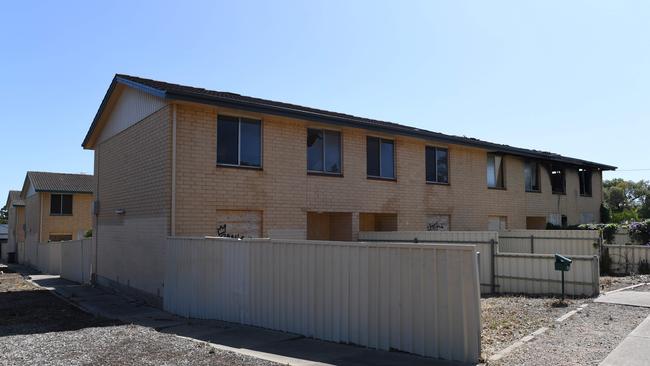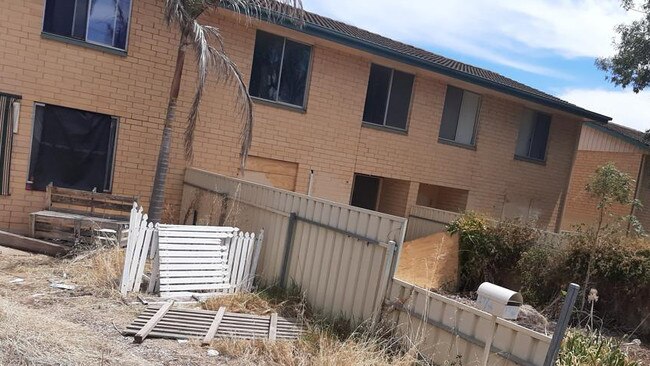Public housing reforms to rule out those who have large assets
Public housing waiting lists would be overhauled with reforms that rule more people out – and those better off will pay more rent.
SA News
Don't miss out on the headlines from SA News. Followed categories will be added to My News.
Better-off singles with assets of around $400,000 and couples with $600,000 would be stripped of their rights to housing trust or community housing under sweeping reforms, and those earning around $52,000 each year forced to pay more in rent.
The long-promised reform options for public housing will be made public for consultation on Friday, with Housing Minister Michelle Lensink stressing no current tenants would be thrown out of their homes.
The main target of reforms are what Ms Lensink called “generous eligibility criteria”, which means homes are not going to the most needy and the government must “hit the reset button on a broken housing system”.
“Social housing should be for our most vulnerable, but the current overly generous social housing eligibility criteria means we are not targeting our services to those most in need – and that’s what we’re intending to reform,” she said.

Of the current 33,886 Housing Trust homes and 11,622 social housing homes, catered for by the welfare sector, Ms Lensink said: “The reforms will not result in anyone currently in public housing losing their tenancy”.
Future applicant numbers will be severely reduced by a new asset and income test.
Currently, South Australians can earn almost $1000 per week and have non-residential home assets of up to $473,750, and still be eligible for a trust house – compared with much lower thresholds interstate.
Couples can have assets of up to $605,000, compared with the average private unit price in Adelaide of $444,000 and house price of $693,750.
Rent for social housing is capped at 25 per cent of the tenant’s salary, and up to 1000 current tenants are expected to have to pay more when the $1017 weekly income limit is set.
Households earning moderate-to-high incomes, yet to be determined, will be required to pay 30 per cent of their income as rent – and these increases will be gradual.
The reforms are an attempt to rein in SA’s massive public housing waiting list, which currently stands at 17,294. This list is divided into three categories with people on the least needy two categories – 14,328 – having little or no chance of being offered a home.
Ms Lensink said all consultation suggestions would be considered.

“It’s been more than a decade since the state’s social housing system underwent significant reform and through these changes we’re modernising the system to create a fairer, better and more efficient system for South Australians using it,” she said.
South Australia leads the nation in social housing, with single tenants able to earn weekly income of $1017 without paying additional rent, compared with $650 in NSW, $571 in Tasmania, $754 in the ACT, $820 in the Northern Territory, $450 in Western Australia, $560 in Victoria, and $609 in Queensland.
The interstate difference with SA is even more stark in terms of asset ownership.
NSW does not have an asset test, but in Tasmania the tenant can own only the equivalent of $35,000 in assets, in the ACT $40,000, NT $70,142, WA $38,400, Victoria $33,844 and Queensland $116,375.
Ms Lensink said the reforms would also make it easier for tenants to break into community housing, which is low-rent housing provided by the welfare sector often using old housing trust stock.
Unlike the Trust, these homes are eligible for Federal Government rent assistance, and cost the SA taxpayer far less.
The reforms will also propose:
ESTABLISHMENT of a new social housing register to make it easier for South Australians to apply for social housing;
ROLLOUT of a more effective affordable housing service to create more opportunities for low-and-moderate-income South Australians to break into homeownership and the private rental market; and
BETTER services to tenants online and over the phone, making it easier more efficient for them to access what they need, when they need it.
Exact numbers of tenants who would pay more could not be calculated until community groups advised on what a “moderate-to-high income” was, Ms Lensink said.
“We are reviewing rent for moderate-and-high-income households to make the system more equitable and tenants who earn more will be required to make a slightly greater contribution for their homes than people on lower incomes,” she said.
